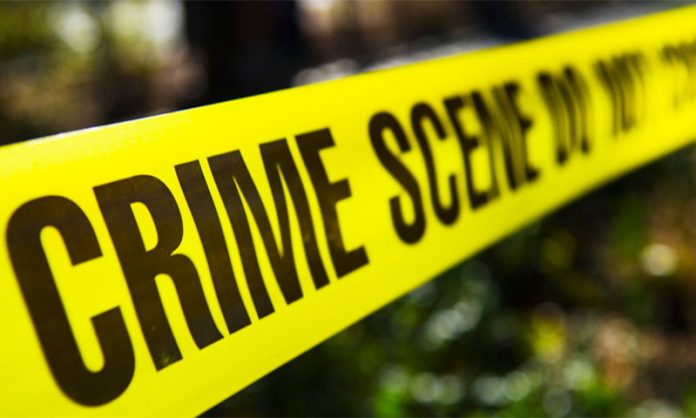At least 156 people were killed and nearly 500 injured as a series of near-simultaneous explosions ripped through three churches and three high-end hotels in three Sri Lankan cities on Easter Sunday. Hours after the first spate of attacks, two more blasts on the outskirts of Colombo claimed two lives.
The blasts hit four hotels and one church in Colombo, while two other churches were targeted in the cities of Negombo and Batticaloa, police said. The death toll included worshippers and hotel guests.
After the eighth explosion, the government declared a curfew and social media ban with immediate effect.
At a glance:
- Four hotels ─ Cinnamon Grand, Shangri-La, Kingsbury and Tropical Inn ─ targeted in Colombo
- One church each targeted in Colombo (St Anthony’s Shrine), Negombo (St Sebastian’s Church) and Batticaloa (Zeon Church)
- At least 47 killed in Colombo blasts: police
- At least 25 killed in Batticaloa blast: police
- At least 67 killed in Negombo blast: police
- 35 foreigners ─ including Dutch, US and UK citizens ─ dead: police
- Nearly 500 injured
- Curfew, ‘temporary’ social media ban imposed
Junior Defence Minister Ruwan Wijewardene told reporters in Colombo that “a curfew will be imposed until things settle down.”
Government officials also said major social media networks and messaging apps, including Facebook and WhatsApp, have been blocked inside the country to prevent misinformation and rumours.
The nature of the blasts was not immediately clear, but an official speaking on condition of anonymity said police suspects the initial blasts at the churches in Colombo and Batticaloa were carried out by suicide bombers.
There have been no immediate claims of responsibility.
The first explosions were reported at St Anthony’s Church in Colombo and St Sebastian’s Church in the town of Negombo just outside the capital.
Shortly after those blasts were reported, police confirmed three hotels in the capital had also been hit, along with a church in the town of Batticalao, in the east of the country. Police immediately sealed off the attack sites.Sri Lankan security officials are investigating the attacks.
A person identified as Alex Agieleson who was near the shrine at the time said that nearby buildings shook with the impact of the blast, and that he saw a number of injured people being carried away in ambulances.
St Sebastian’s appealed for help on its Facebook page. The explosion ripped off the roof and knocked out doors and windows at the church, where people carried the wounded away from blood-stained pews, TV footage showed.
Local TV showed damage at the Cinnamon Grand, Shangri-La and Kingsbury hotels in the capital. The Shangri-La’s second-floor restaurant was gutted in the blast, with the ceiling and windows blown out. Loose wires hung and tables were overturned in the blackened space.
A police magistrate was at the hotel to inspect the bodies recovered from the restaurant. From outside the police cordon, several bodies could be seen covered in white sheets.
Photos circulating on social media showed the roof of one church had been almost blown off in the blast. The floor was littered with a mixture of roof tiles, splintered wood and blood. Several people could be seen covered in blood, with some trying to help those with more serious injuries. The images could not immediately be verified.
Hours after the first series of blasts, a seventh blast struck at a hotel in Colombo’s Dehiwala area and killed two people, police spokesperson Ruwan Gunasekera said.
“There was an explosion in a hotel in Dehiwala near the zoo,” a police official told Reuters adding that there were no further details available. An eyewitness on local TV said he saw some body parts including a severed head lying on the ground near the hotel. Zoo officials declared Dehiwala zoo closed after the blast.
Shortly after, an eighth blast hit the suburb of Orugodawatta in the north of Colombo, police said, without providing additional details on what was targeted.
Police chief warned of threat 10 days ago
According to a document accessed by AFP, the Sri Lankan police chief had warned of possible suicide attacks targeting “prominent churches” in a nationwide alert 10 days ago.
Police chief Pujuth Jayasundara sent an intelligence warning to top officers on April 11 setting out the threat.
“A foreign intelligence agency has reported that the National Thowheed Jama’ath (NTJ) is planning to carry out suicide attacks targeting prominent churches as well as the Indian High Commission in Colombo,” said the alert. The NTJ came to notice last year when it was linked to the vandalisation of Buddhist statues.
SL PM calls emergency meeting
Sri Lankan Prime Minister Ranil Wickremesinghe condemned the attacks and called an emergency security council meeting, sources told Reuters.
“I strongly condemn the cowardly attacks on our people today. I call upon all Sri Lankans during this tragic time to remain united and strong,” Wickremesinghe said in a Tweet. “Please avoid propagating unverified reports and speculation. The government is taking immediate steps to contain this situation.”
Minister of Economic Reforms and Public Distribution, Harsha de Silva, tweeted: “Emergency meeting called in a few minutes. Rescue operations underway.”
He said he had been to two of the attacked hotels and was at the scene at St Anthony’s Shrine, where he described “horrible scenes”.
“I saw many body parts strewn all over,” he tweeted, adding that there were “many casualties including foreigners”.
“Please stay calm and indoors,” he added.
President Maithripala Sirisena, in an address following the attacks, said he was shocked by the explosions and appealed for calm.
Finance Minister Mangala Samaraweera, writing on his verified Twitter account, said the attacks had killed “many innocent people” and appeared to be a “well-coordinated attempt to create murder, mayhem and anarchy.”
The Pakistani Foreign Office retweeted contact information for the Pakistani High Commission in Colombo for Pakistani nationals in Sri Lanka.





